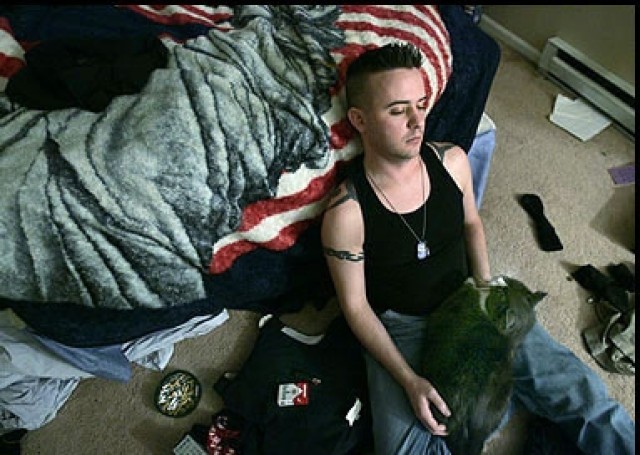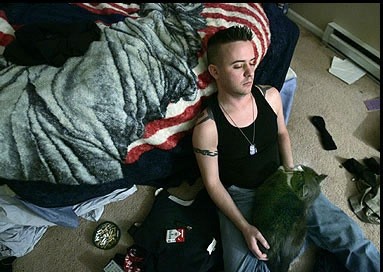Most know Post Traumatic Stress Disorder can affect anyone who's been in direct combat, but not everyone knows PTSD can also affect those who have deployed in support roles.
"They don't have to be on the front line to suffer from PTSD, because there are no clearly defined front lines in this war," said Maj. Noel Cuff, officer in charge of Community Mental Health on Fort Richardson.
PTSD can also affect Soldiers in very different ways and can have far-reaching effects when it goes undiagnosed. The Department of the Army has placed such an emphasis on early detection of PTSD symptoms; it has now directed all Soldiers, including those in the Reserve and National Guard, to participate in PTSD-related training by Oct. 18.
"In order to remain 'Army Strong,' every leader and Soldier must be capable of identifying symptoms and ensuring that treatment is available to every Soldier who requires or requests it," states All-Army Activities message 160-2007.
"We already know that between 20 to 30 percent of U.S. military personnel returning from current combat operations report psychological symptoms," Cuff said. "All Soldiers who have deployed can be affected in some way or another."
Combat and operational stress is an inevitable part of a Soldier's experience while deployed.
"Most Soldiers will successfully adapt to their reactions, but some won't," Cuff said. "If leaders get help to those Soldiers, their recovery will be faster and more complete."
PTSD can have negative effects on every aspect of life, from incapacitating professional abilities to affecting family relations, he said.
Nobody is immune; sometimes even the strongest Soldiers are affected so severely they will need additional help.
"However, it is treatable and can improve with the right care," he said. "It is important to remember, although you may not be struggling, your battle buddy may be. We know that combat and operational experiences will impact each Soldier differently."
Cuff said it is imperative everyone gets on the same page when dealing with Soldiers who might be suffering from PTSD; it's everyone's responsibility from privates all the way up to commanders.
"Soldiers and leaders have a responsibility of not only recognizing symptoms in themselves and others, but need to play an active role in facilitating and allowing Soldiers to seek help and referral," Cuff said.
Everyone needs to work to reduce the stigma associated with asking for help, he said.
"Soldiers do not want to appear to be weak," he said. "We as leaders need to take actions to reduce the stigma associated with seeking help, because it can worsen Soldiers' conditions, and it works against readiness and effectiveness."
PTSD is a genuine medical condition, and there are varying degrees of the illness. Commanders should ensure their command climate gives Soldiers confidence that seeking mental health support will not adversely impact their career.
"Most Soldiers do OK without medical care, but persistent symptoms may need medical care," he said.
"Commanders should ensure PTSD briefings are provided to family readiness groups," Cuff said. "Remember, all Soldiers who have deployed to combat are affected in some way or another."
Additional information on PTSD can be found at www.behavioralhealth.army.mil or www.militaryonesource.com.
Soldiers and family members can also take an anonymous online survey at www.militarymentalhealth.org.
PTSD symptoms
Anger management issues.
Aggression or physically volatile.
Withdraws from friends and family.
Avoidance of places, people or feelings that cause recall of an upsetting "event."
Reoccurring nightmares.
Experiencing an upsetting "event" over and over.
Insomnia or poor sleep patterns.
Feeling "keyed-up" or "on-edge" all the time.
Abuse of alcohol.
High risk behavior.
Any changes in demeanor or behavior that isn't typical for that person.


Social Sharing